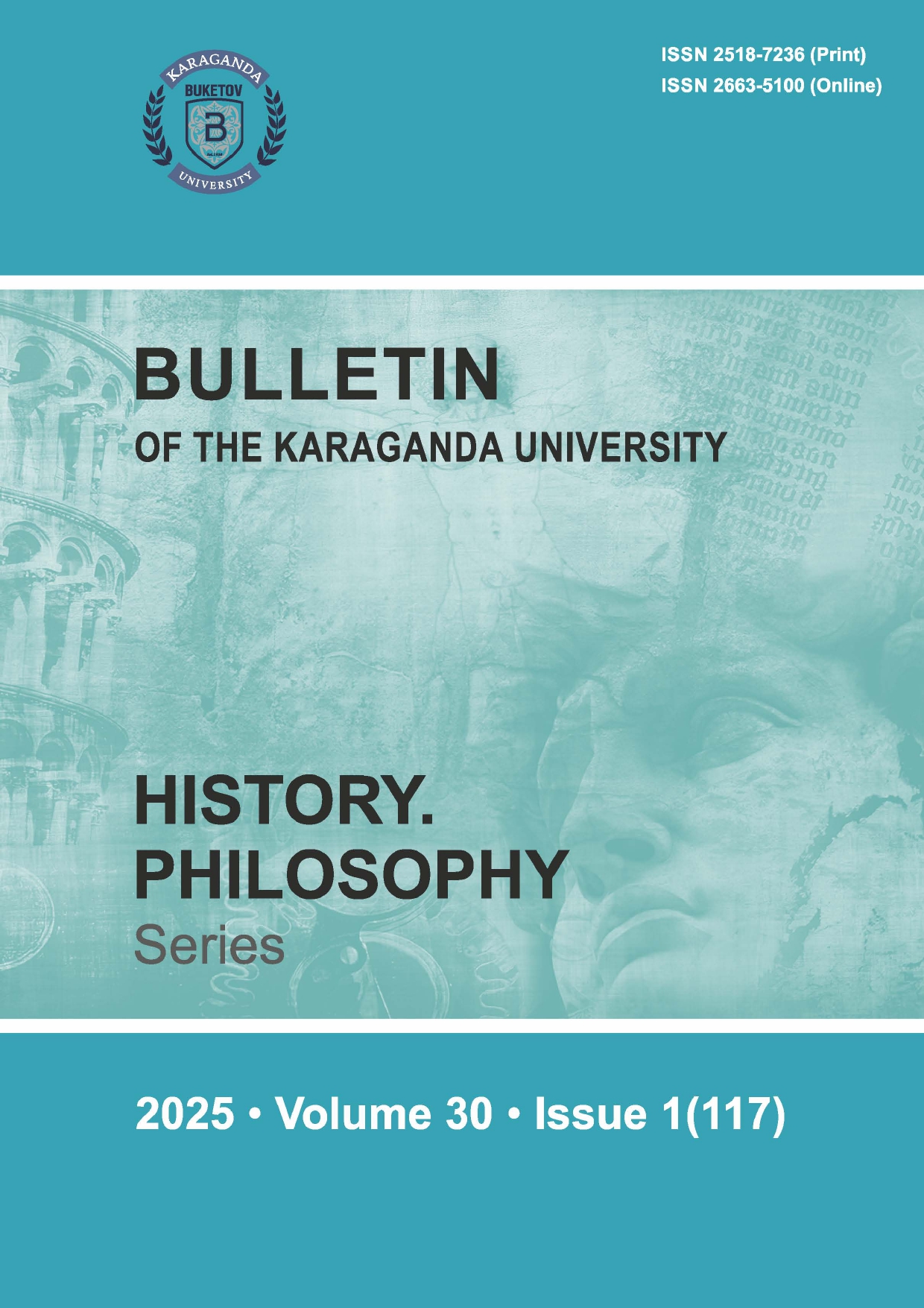Mutual influence of morality and religion
DOI:
https://doi.org/10.31489/2025hph1/390-398Keywords:
ethics, God, humanism, culture, secularization, moral values, emancipation, happiness, virtueAbstract
The article was written in the scope of the topic of the dissertation research “The problem of relationship ofmorality and religion in Kazakh philosophy”. The article examines the intricate relationship between moralityand religion, exploring their historical, philosophical, and cultural intersections. It highlights the evolution ofmoral norms as both independent of and intertwined with religious ideologies. These secular approaches fre-quently prioritize practical outcomes, emphasizing efficiency and overall benefits. However, individualisticand utilitarian perspectives can sometimes conflict with deeper, more intrinsic moral values associated withreligion. As a result, whereas secular morality can foster social cohesion and progress, it does not alwaysalign with deeper moral principles that surpass purely practical considerations. This perspective suggests thatmorality is a product of social and historical evolution rather than being dictated by practical reasons. Alt-hough moral standards have traditionally been tied to religious consciousness, their modern humanistic rein-terpretation places greater emphasis on their genetical connection with sources and process of emancipationof moral norms from religion, becoming secular morality as independent construction. The article ultimatelydiscusses the question of the dependance and contextual nature of religion on morality and at the same timeautonomous nature of moral obligations, underscoring the importance of situational ethics and human deci-sion-making over rigid absolutes. In conclusion, it advocates viewing morality as an autonomous form of so-cial awareness, fully capable of guiding humanity independent of religious influence.




